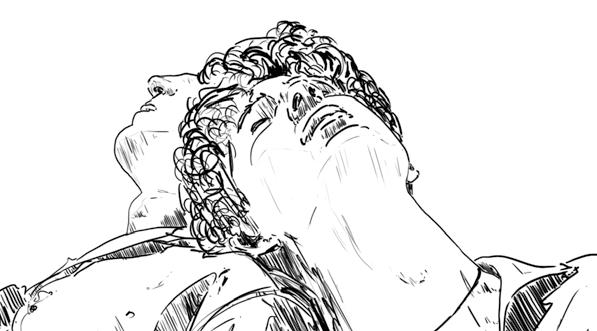
4 minute read
Pushing the Boundaries of Reason
Pushing THE BOUNDARIES OF REASON SO
Everything in the world can be rationally explained, right? Evolution, The Big Bang, Chemistry, physicalism: it all provides a logical explanation for the way the universe is. But is this rational approach the limit of the universe’s potential? Perhaps there are aspects of the world, or indeed of humans themselves, that cannot be explained by reason; these are not irrational, but simply beyond reason.
Advertisement
Twentieth Century scientist, historian, theologian and public intellectual Alister McGrath argues against the new atheistic argument, claiming that although reason is a good basis for understanding, reason is not all there is. McGrath pushes the boundaries of reason and claims that, where reason is limited in constructing a vision of reality, faith takes over to illuminate the truths of the universe. He, therefore, argues that faith in God is not irrational - it goes beyond the boundaries - or ‘prison framework’ - of reason. Criticising Richard Dawkins’s use of science as a weapon to disprove God and destroy faith, McGrath contends that the way of the universe is more complex than Dawkins suggests and, therefore, using science and reason alone to attempt to explain all aspects of the universe pushes them beyond their limits. Atheist Richard Dawkins would disagree with McGrath and argue that we are limited to what humans can prove to be true, therefore all that can be known to exist is that which human rationality can conclude, discounting the possibility of the existence of God and thus challenging McGrath’s claim.
Some philosophers might also question McGrath’s jump to God as the extension of reason and suggest that McGrath is presenting a presumptive and unnecessary entity. They might argue that there is no more evidence for the Christian God as the extension of reason than there is for the Hindu, Muslim or Sikh Gods; that McGrath jumps to a presumptuous conclusion that cannot be proved right or wrong. McGrath, however would respond by suggesting that he is not presenting an ‘extra item’ or superfluous entity to the reality of the universe in order to explain what reason cannot, he is merely drawing light on the natural instinct and underlying truth that is beneath all of us, which our reason and intuition leads us towards. McGrath, therefore, claims that God is evident not only by the limitations of reason and science, but also by the natural way of our intuition and fundamental understanding of the universe and more than just the physical.
Moreover, McGrath looks to 19th Century British writer and lay theologian C.S.Lewis and his distinction of the rationality of faith. For Lewis, faith allows us to see things as they really are - it illuminates the whole picture, of which reason allows access to only part. Lewis famously explains his belief in God as follows: ‘I believe in Christianity like I believe the sun has risen, not only because I see it but because by it I see everything else’, thus adding to McGrath’s claim that the ‘Christian lense’ brings things into focus, allowing us to see further and clearer the scientific and rationally explored world. Lewis justifies the Christian way of thinking with the assertion that worldly experiences fit in with the Christian way of thinking; Christianity, according to Lewis, fulfills the experience of our fundamental, most precedent desire and subconscious belief: that this world is not our true home and that we are primarily more valuable and remarkable than other organisms in the world. Extending his claim, Lewis is convinced that reason points beyond itself and into faith; it is not about running away from reason, it’s about grasping a deeper order of things which is more easily accessed by the imaginative mind. Most scientists and philosophers would agree with this idea that reason does not provide the whole picture of the reality of the universe; that it is limited and does not provide all the answers., therefore there is a way in which faith could follow the boundaries of reason and ‘fill the gaps’.
Ultimately, although various scientific and philosophical arguments question the existence of God and reality of faith in an apparently purely rational and physical world, McGrath, drawing on the writings of C.S.Lewis, tries and tests the boundaries of reason to conclude that, although reason is useful as a tool of evidence and argument, faith in God is the only way by which one can observe the whole picture of the way the universe is. As French mathematician, physicist and Catholic theologian Baire Pascal alluded to, ‘the heart has its reasons which reason knows nothing of… we know the truth not only by the reason, but by the heart.’
C Hall, Upper Sixth






